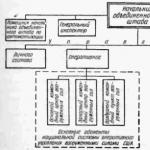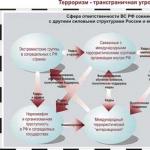Portugal is a beautiful country with a rich historical and cultural past. This was undoubtedly reflected in the manner of speaking. It is based on the familiar Latin alphabet and belongs to the group of Romance languages, which contributes to the ease and relative simplicity of its study.
Portuguese is the state language in 9 countries, which is more than 230 million people. And in terms of sound and grammatical features, it is very similar to classical Spanish.
Linguists distinguish 2 types of Portuguese: classical and Brazilian. They are quite different from each other in phonetics, and in spelling, and in grammar. There are many words in the translation of which 2 different versions are obtained. This is due to the stability of the language in the territory of modern Portugal and with regular changes in pronunciation and spelling in other countries. Further we will talk about the classic book version, in 2008 the last significant changes were made at the state level.
If you study regularly 2-3 times a week and repeat the material regularly, it will be quite tolerable to explain yourself on everyday topics in 2-3 months. And in a year you can reach a quite decent level - conversational with a dictionary. Learning Portuguese on your own is as difficult as any other language, it takes a lot of time and strong motivation.
Portuguese on my own
Learning Portuguese is quite easy, especially if you have a background in learning other languages and experience in doing exercises. It is quite simple, there are only feminine and masculine genders, the minimum number of incorrectly declined verbs.
In general, the process of learning any language consists of interrelated stages, which must be performed sequentially, adding complexity gradually. Difficult tasks in the early stages of learning can kill any enthusiasm completely. The results of each school day should be tangible - it can be a new word, a rule, or an analysis of a famous song. It is best to share your achievements with like-minded people.

At the first stage, they traditionally get acquainted with the pronunciation and “try” the sound of words by ear. Usually, a minimum of text is used here, a maximum of graphic materials:
- alphabet and pronunciation of some letters and syllables;
- learning simple monosyllabic words and concepts, most often as examples of the sound of individual letters;
- audio materials - music, simple nursery rhymes and rhymes in Portuguese.

All exercises are aimed at gradually getting used to the sounds of speech, pronunciation and broadening one's horizons. Further, textual materials and more complex tasks are added, aimed not only at sound, but at reading and understanding the written text. The following exercise is added:
- written tasks related to the sound of individual words;
- reading from a sheet of simple phrases and short simple sentences;
- analysis of syllables and diphthongs obtained by combining two vowels or a vowel and a consonant.
At this stage, you can diversify the learning with videos for children with Portuguese subtitles to reinforce the perception of sound, pronunciation and context. It is still difficult to pronounce meaningful phrases and expressions here. But a personal dictionary appears with the first words in Portuguese and a translation, it is he who will help to periodically refresh the information already studied in memory. By the time you read the first simple sentences, several months may have passed. A little later, you need to add to the training:
- writing letters and simple monosyllabic words to consolidate the material with the help of mechanical memory;
- reading small texts of a basic level of complexity with a gradual increase in the level;
- videos with subtitles in Portuguese to get used to speaking.
Reading texts should cause a certain complexity and the need to use a dictionary, ideally, to learn something new, you need to understand about 70% of the text. At 90% or more, the complexity of the texts needs to be increased. Methodological materials and a variety of written exercises will already be required to develop motor skills and consolidate the studied material.

Only after passing the basic stages with a good result, you can move on to reading books, learning grammar and spelling rules, watching movies in Portuguese. The final stage can last indefinitely, you can improve the language all your life, because even the Portuguese themselves do not know it 100%. At this stage, you can use a complex of text, audio and video materials, you will need:
- audiobooks and music in Portuguese;
- adapted books from basic to advanced;
- a variety of video materials (it is better to watch videos on interesting topics);
- communication with native speakers in language centers, on special forums or other network resources.
These materials are available online or on the shelves of bookstores so you don't have to attend a language school regularly to learn from books. But at the first stage, the help of a teacher will still save you both nerves and time. Setting the pronunciation for yourself is a very difficult event; it is almost impossible to study the phonetic features of the language on your own.
How can you learn Portuguese?
These mandatory, or basic, stages will have to be passed, which of the training options you would not choose. Without phonetic foundations, it is difficult to pronounce words correctly, and without the pronunciation of letter combinations, it is almost impossible to learn how to read books. There are several options for learning the Portuguese language (however, like any other) with the help of a teacher or native speaker. The most popular of them:
- language schools and language courses with experienced teachers and homework;
- online courses where you can get advice, help and support at all stages of learning;

- specialized chats and forums, where teachers and native speakers themselves often offer their help;
- personal lessons with a teacher - they are much more expensive than any other options, but great for emergency study;
- armed with a phrase book and a dictionary of the Portuguese language, go to Portugal.
A trip to a country where everyone speaks Portuguese can cost a lot, but it can also bring more results than a couple of years in a language school. Here you should choose according to the possibilities and desire, as well as proceed from the timing and purpose of training. A single business trip involves one level of language proficiency, while living in a country and working in a technical field is a completely different one.
Resources for learning Portuguese from zero to conversational level
In addition to traditional books and educational materials, modern technologies offer various websites and applications that can greatly facilitate the entire learning process. Somewhere methodological literature is freely available, someone offers online assignments and tests, and on some sites you can watch video and audio materials.
The following 10 options can be distinguished from online services:
Duolingo.com is a great resource and very popular with students and young people. Here you can choose a level for yourself and learn the language in the form of a game, including through a mobile application for a smartphone.

- A popular service for accelerated learning - Language Marathon Language Heroes . Both native speakers and those wishing to improve their knowledge and communicate with like-minded people gather here.
- A site where you can improve your knowledge of grammar, or the blog semantica-portuguese.com. There are a large number of articles on various topics about the country, cultural characteristics, national holidays, various rules for speaking and writing Portuguese.
- You can sing songs in karaoke and just listen to your favorite performers on the website www.ouvirmusica.com.br . Easy navigation, a large number of well-known compositions, divided by genre and artist, lyrics.
- Online radio for PC or smartphone Tunein , here you can select the radio station of any region of the country of interest and listen to programs in real time.
- Everyday phrases, spoken Portuguese can be improved using an online resource SemperFamilia . Here you can read articles, do exercises and supplement your speech with simplified everyday vocabulary.
- Podcasts from native speakers will help you understand spoken language. On the site audio lingua materials are presented in 13 popular European languages.
- Excellent exercises in Portuguese phonetics, recorded by native speakers from Brazil and other countries, an interesting guide to pronunciation Forvo.

- Online course service Memrise , including classes in phonetics, vocabulary and spelling. Here you can choose tasks according to your level.
- For those who want to learn the language from books or read famous works in Portuguese interpretation, the following online resources are suitable: book library and light reading on various everyday topics - online magazine Veja.
- In the Play Market and the App Store, you can find dozens of apps to learn Portuguese from any level. These links will be enough to get you started, and advanced students will already find additional resources to help.
Regular lessons. If you want to learn something, you need to conduct regular and fairly frequent classes. As for language learning, at least 2-3 times a week it is necessary to devote 2-3 hours to studying new material. Or every other day, but for 40-50 minutes. If less often - everything learned is forgotten, more often - training quickly bothers

- Self-motivation and entertainment. Textbooks and methodological indexes will bore even the most motivated student. Diversify the process by watching funny videos, reading materials that are interesting to you and communicating with like-minded people.
- Tasks for daily repetition. Come up with traditions or games for memorizing the material: word of the day, day of Portugal, 2 books a month with writing a review, etc.
- Begin the lesson by reviewing what you have learned. A dictionary and a personal workbook will help you not to miss important things and remember all the words. When there is a lot of material, repeat selectively from different parts.
- Take every opportunity to exercise. It can even be a conversation with loved ones, chatting on a forum or in a group, skype calls - colloquial speech helps to start thinking close to the original and understand unfamiliar words in the context of a conversation.
- Create a rating system for yourself. Treat yourself to your favorite cake after the end of a big topic, or please yourself with a new blouse with a successful test. This will help to connect boring and difficult studies with prizes and pleasant moments. It is psychologically easier to experience difficulties, complete with joyful events.
- Don't drop out immediately at the first sign of boredom. Learning a language for yourself has an unpleasant side - you can quit at any time. If the motivation is your momentary desire, then the fuse will quickly pass, and the pleasure of understanding speech in a foreign language will come not earlier than in six months - a year. Surviving this period and actively absorbing educational material is a difficult, but quite feasible task.

Learning any language is impossible without immersion in the history and culture of the country and people. Portugal is a country that can bring you many surprises. Lisbon is a great old city with many beautiful buildings and architectural monuments. Impulsive and very active, the Portuguese will appeal to those who like to chat and throw out emotions. Culture, holidays, traditions and customs - they are very different from Russians in all areas. And the beauty of architecture and a large number of attractions will surely attract you with a tourist visit. Learn Portuguese on your own and with pleasure, and this country will definitely reciprocate.
Portuguese ranked sixth in the world after Chinese, English, Spanish, Arabic and Russian. It originated, like all other Romance languages, from vernacular Latin. Surprisingly, the Portuguese language in our country is still considered an exotic language. The number of people learning Portuguese is much lower compared to those learning English, German, French or Spanish. Lingust decided to correct this situation by giving you the opportunity to get acquainted with this language.
Currently, the Portuguese language exists in two main variants - European and Brazilian, which differ in phonetics and vocabulary. In the tutorial presented on the site Fatima and Uwe Brouwer() presented European Portuguese, however, the features of the Brazilian version are noted in the pronunciation lesson and a separate lesson is also devoted to them, as well as five voiced texts, perhaps there will be more texts in Brazilian later.
Go to → list of lessons ← (Click)
Reasons to learn Portuguese
- Want a good reason to learn Portuguese? Why don't you like the phrase "sixth place" at the very beginning of the page? This is more than 240 million people, which is about 2.5 times more than those who speak German, and almost 2 times more than those who speak French. And these 2 languages are the most popular in the whole world, not counting English.
- Get to know Portugal and its capital, Lisbon, one of the oldest cities in the world and one of the most livable. Taste the famous Portuguese port wine. Take your first surf lessons, because this is the center of the European surf movement. Visit a torada - a bullfight in which the animal is knocked to the ground with almost bare hands. Listen to fado - the music of the Portuguese soul. And much more.
- Of course, Brazil, the largest Portuguese-speaking country, with its own special attraction image of rhythm and color, with its vast beaches, tropical forests, exotic plants and wildlife, resonant music, dance, football, and more. By studying the lessons on the site, start listening to Brazilian speech , and in the end you will understand both versions of the Portuguese language, because for the most part the difference is only in some sounds, and you can get used to them.
- Besides Paulo Coelho, how many writers do you know? (writing in Portuguese) And there are many of them, and you need to know about them. Luis de Camões, for example. His poem "The Lusiads" is a real national epic. Comoens has been compared to Dante, Virgil and Shakespeare. José Maria Esa de Queiroz: his novels enjoyed pan-European success; Emile Zola put him above G. Flaubert. But do these names mean much to you? There are many other great Portuguese writers: Camila Castelo Branco ("Portuguese Balzac"), Fernando Pessoa, José Saramago, Jorge Amado, Joaquín Maria Machado de Assis, Carlos Drummond de Andrade and others.
- Music is a great motivation for learning a language. Folk music Fado ( ozn. fate) plays an important role in the national self-identification of the Portuguese, as it draws a clear line between the bright and lively Spanish rhythms, representing the violent and harsh Spanish character, and the soft and melancholy soul of the Portuguese people. Brazilian samba harmoniously combines music, singing and dance. In the 30s of the XX century, samba became an expression of the spirit of the carnival of Rio de Janeiro, later, in the 40s, it received worldwide recognition and acquired the status of a symbol of Brazil's national identity.
- Perhaps you are a challenge seeker. You could just take up Spanish, it's easier. In Portuguese, phonetics is much more difficult, and grammar is a little more difficult. But there is an opinion that by learning Portuguese, you can understand a little Spanish. (Castilian); having studied Spanish, you will not be able to understand Portuguese. It turns out, having studied one language, you receive the second as a gift. This is, of course, a joke, but there is some truth in it.
- Why are you teaching?
This course from 30 lessons + final test created for a beginner who is not at all familiar with the Portuguese language. At this stage, our goal will be to introduce you to the Portuguese language, to give a general concept.
Having studied and worked through the entire course, you yourself decide to continue studying further or not.
For my part, I guarantee that the lessons will certainly bring you a lot of positive emotions from the process and the main reward is the result of your knowledge and, as expected, the application of the experience gained in practice - in life.
After all, as we all know: Knowledge without practice is dead knowledge.
I think that the living Portuguese language will enchant you forever. It's like taking a dip in the warm sea water on the Brazilian coast. Feelings and impressions that will never be forgotten, except that they can be repeated.
Personally, my experience was exactly like this when I studied Portuguese back in 2004, for me it was a fateful event that turned my whole life upside down. I must say that in 2016 it will be 12 years that I dedicated and gave to Portuguese Brazil. She never regretted for a moment the hours spent both in studying and in practice, and later daily practice, living side by side with the Brazilians day after day for almost 9 years.
What feelings do people spontaneously fascinated by the Portuguese language have?
It's like falling in love with a person! Once and for all life. It's not love at first sight. It is a love that is comprehended, deepened, strengthened and developed gradually and gradually as it deepens into the bowels of the Portuguese Brazilian.
Do you want to experience something similar in your life? Do not cram, do not torture, do not memorize and force yourself out of the stick. And to really fall in love with the language and it will never again be a difficult task and strong-willed efforts on oneself.
It will be a hobby, joy, high and a result that will give you the desire to conquer new horizons, to see what you are capable of! How far are you ready to go after your dreams and find out your own abilities in patience, diligence, diligence, constancy of motivation and a lot of everything that we are trying to develop in ourselves throughout our lives in order to become successful, fulfilled, happy.
Do you want to realize your dream of understanding Portuguese?
Start here today! Let this course be your starting point in achieving your dreams.
Back to the details of the course, how do the basic lessons happen?
How it works?
Free course - 100% free.
You need to enroll in the course in the form on the main page of the site.
You receive 4 letters once a week. In each letter there are links to sets with lessons.
The free course includes 30 lessons. Each lesson materials in PDF format + video.
Lessons are developed by me personally, no plagiarism from textbooks. You can buy textbooks without me.
The lessons included time-tested information. All material is passed through personal experience (12 years with live Portuguese). The lessons are not the same as in standard courses and textbooks. Only experience + textbooks + life realities.
Everything that the Brazilians were able to convey to me in 10 years, I give to you. Without embellishment, understatement and "fabulous" elements. Only the way they really communicate in Brazil.
About Portuguese European (Lisbon, Portugal). My favorite is Portuguese Brazilian. That's what I specialize in. No other. Other versions of Portuguese are not interesting to me and I could not put my soul into them, as I do with the Brazilian version, which for me is joy, work, pleasure and work.
Each theory lesson is short (up to 4 pages), written assignments + a video file are attached to it (usually up to 7 minutes).
Study the lessons and complete the assignments in writing.
The tasks are simple, great to improve your knowledge of Portuguese and your motivation to study. Those who do not want to do any tasks are those who do not really need it. And who does, go to the end.
You are free to do your homework in the mode that is convenient for your daily routine. Everyone has a different pace of life. Some are busier, some less. We all only have 24 hours in a day. That is why I want you not to feel in some kind of difficult framework when exactly to perform. You can do it at the pace that suits you.
About verification. Everything needs time. I check the homework of the students of the "Basic" group at the end of the week regularly, I allocate several hours for this. After verification, I send the verified version with notes, answers to questions, comments to the email from which the letter with dz.
Attention, the course itself is free: lessons, theory, material, practice.
Verification of works is a paid service. You are free to choose to simply subscribe and receive all the materials for free, complete the lessons in the table or find someone to check.
Or subscribe, receive lessons and submit work for review. If you send homework number 1 - I inform you about payment in the first letter. Payment is made in one go = 930 rub(for the whole course 30 lessons and control work).
This is how we keep in touch with you. You see what works and what doesn't work. Where you need to pull yourself up and where you succeeded and surprised with your efforts.
For more than 4 years that I have been teaching Portuguese online, I have seen people of different types, temperaments and diligence. Some drove me crazy with inattention to the material, others amazed me with their accuracy and purposefulness in completing tasks.
Everyone is individual and my task is to find the key to each. It is in order to realize the main mission of the project - communicate Portuguese Brazilian effectively to everyone who really likes it and who is ready to devote time to it.
Throughout the time that you will study the lessons from the free course, if you decide to send homework for a paid check, then you send them to me by email. Homework is only done in a Word document. Important: a document with dz must be named according to the template: Surname_Name_lesson No._.
How it looks like (document name, I mean): Ivanov_Ivan_ur1(or if there are several dz in one document at once, then the range from which to which lesson is indicated: Ivanov_Ivan_1-10ur.)
Each student, so as not to get lost in the common database, has his own folder, and if a dozen works come in with the name: "Doc-t: dz 1". It is very easy to confuse them and send them to the wrong people.
It happened in practice, so this paragraph is strict. Only by fulfilling this requirement can you be sure that your dz will be received and verified. DZ with the name "homework" and something similar - are not checked.
You will have feedback with me during the course of the lessons, and I will also give support in emerging questions on the topic of the Portuguese language within the framework of the topics covered in this basic course.
Topics not included in the course, based on their complexity, are not covered in the course, because it is basic, introductory, for simple communication skills, and not deep knowledge. All this is covered in the advanced course, which follows the basic course on a paid basis.
You will not receive my emails for selling or selling anything.
The main disadvantage of the free course is that it does not include my assistance via Skype. That is, I can not check your pronunciation. But in terms of writing and speaking, the basic course does well.
The course allows you to get the basics of the language. At the end of the course, you take a final test to test yourself.
What are the achievements for the work done? What are the results? There is something to strive for? Do you want more?
I explain everything in a straight forward way. I prefer to be honest with you, no false promises, no ulterior motives.
Fill out the form on home page site and confirm your consent to the free course (in the activation email from the mailing service) - and the first archive with lessons will come to you at 8 am
Do not postpone your dreams "for later", remember that we write life on a clean copy, there will not be another chance.
I recalled an Arabic proverb: "A dressed-up camel in the desert is found only once!"
Don't miss your chance, Brazil is waiting for you!
See student testimonials
Inhale-exhale
And you will never forget the aroma of Brazilian air. It needs to be experienced. You can't describe with words. Get inspired for great achievements in your destiny!
Portuguese is a language that sounds like music. No wonder Portugal and Brazil have such rich musical traditions. Fado and bossa nova, tropicalia and samba... Music is the best starting point for learning a language, and singing is a great way to improve your listening and pronunciation skills. Melodious and expressive intonations, almost mournful vowels, something that is so well conveyed by songs of longing. Take into account the fact that Portuguese has its own untranslatable word for an emotional state that describes bright sadness, nostalgia and melancholy - saudade. And this is a feature of the national character of the Portuguese. Perhaps Portuguese is the sexiest language of all the Romance languages - even more so than French and Italian.
Motivation for learning
Learning Portuguese opens doors to the cultures of four continents - Seja bem-vindo!
By learning Portuguese, you will have the opportunity to experience cultures that are unique and diverse, ancient and modern, traditional and innovative.
Portugal is a small country, but its official language covers almost the entire world. Currently, due to the expansionist activities of the Portuguese in colonial times, it represents the Latin American region, the Pacific coast areas, parts of Africa.
Which countries speak Portuguese? The "Comunidade dos Países de Língua Portuguesa" ("Community of Portuguese Speaking Countries") has nine member countries: Portugal, Brazil, the State of Angola, Cape Verde, East Timor, Equatorial Guinea, Guinea-Bissau, Mozambique and Sao Tome and Principe. In which country is Portuguese the official language, other than those listed? In Macau, a special administrative region of China and a former Portuguese colony. Thanks to historical ties, Portuguese is widely spoken in Sri Lanka, Goa, and India.
Most of the native speakers, of course, are in Brazil, where more than 207 million people live, the vast majority of them are native to Portuguese. Brazil is an exotic, romantic, incredibly diverse country with one of the richest and most exciting cultures. Having experienced European, African and Asian influences throughout its history, it presents an amazing panorama that stretches from samba to capoeira, from festa junina in the north to churasco and mate in the south.
People interested in exploring the Hispanic and African diasporas will be able to travel around Brazil, studying the texts and culture of people of African descent in Brazil and Africans who speak Portuguese. Considering that this language is less learned than some other European languages, despite its global importance, foreigners who speak Portuguese will definitely stand out from the crowd. This language will allow students of environmental and biological sciences to actively participate in travel and projects taking place in the Amazon rainforest.
 The culture of Portugal is also distinguished by its diversity, which has experienced the influence of many peoples and civilizations throughout history. The unique combination contributed to the unique architecture, the richest musical heritage, and of course, amazing cuisine.
The culture of Portugal is also distinguished by its diversity, which has experienced the influence of many peoples and civilizations throughout history. The unique combination contributed to the unique architecture, the richest musical heritage, and of course, amazing cuisine.
Brazil and Portugal are just the tip of the iceberg! The history and culture of each Portuguese-speaking region, not only Latin America, is no less intriguing and worthy of exploration.
Learning Portuguese will help improve job prospects in general. Thus, the Brazilian economy has experienced ups and downs, but the fact remains that it is the eighth largest economy in the world. Brazil is a major player in international business, so knowing Portuguese is an advantage in the business world. The largest of the Latin American countries, it has experienced rapid development in recent years and is now attracting expats like never before.
These are not only immigrants, but also buyers of second homes and real estate investors. People are drawn to the beautiful white sand beaches and warm tropical weather. They buy beachside properties and invest in profitable pre-construction projects while enjoying a relaxed lifestyle. Although Brazil today is not as cheap a country as it was a few years ago, the cost of living is still low in most localities.
Features of independent study of the Portuguese language
 The best way you can choose to learn Portuguese for beginners is to listen to yourself. It may sound a little transcendent, but it really works with any new language. Some prefer traditional methods, which means learning grammar, memorizing vocabulary before they start or can speak Portuguese. As a rule, they need more time to develop their speaking skills, but it's worth it. Very soon, a student who chooses the classical way to learn Portuguese understands a lot, including works of literature.
The best way you can choose to learn Portuguese for beginners is to listen to yourself. It may sound a little transcendent, but it really works with any new language. Some prefer traditional methods, which means learning grammar, memorizing vocabulary before they start or can speak Portuguese. As a rule, they need more time to develop their speaking skills, but it's worth it. Very soon, a student who chooses the classical way to learn Portuguese understands a lot, including works of literature.
For another category of students, it is easier to learn the language in the “reverse order”, that is, learn as you go and practice speaking without paying much attention to one or another grammatical rule. Of course, they make mistakes (and correct them), but they will never forget the language and will always be able to speak it when necessary. It is similar to how we comprehend our native language in childhood. In fact, recently such an "unconventional" method has become very fashionable for learning foreign languages. True, it is ideal if a person lives among native speakers.
Is it difficult for a beginner to learn from scratch?
To a greater extent, comprehension of the language, when you achieve real results, comes down to the motivation and perseverance of the student. This is what decides whether you end up being fluent in Portuguese or give up at the learning stage. Portuguese is a Romance language and belongs to the Indo-European language family. Similarities can be found with other Romance languages - English, French, Italian and, of course, Spanish.
The most difficult aspect of learning Portuguese is pronunciation and understanding what native speakers are saying. This is especially true in European Portuguese, where speakers tend to "swallow" vowels and it is difficult to distinguish between syllables. Portuguese also has nasal vowels. In addition, some letters mean different sounds depending on the context. Learn the Portuguese alphabet! In principle, each language has its own tricks and this is definitely not a reason to stop!
Which type is more complex - European or Brazilian?
 Standard Portuguese is based on the Lisbon dialect. Differences in dialects within Portugal are small, but Brazilian Portuguese may differ from European Portuguese; this applies to intonation, pronunciation, grammar and vocabulary are no exception. For example, such a feature - objective pronouns in Brazilian Portuguese occur before the verb, as in Spanish, in standard Portuguese they follow the verbs. Despite differences in phonology, grammar, and vocabulary, Portuguese is often mutually intelligible with Spanish.
Standard Portuguese is based on the Lisbon dialect. Differences in dialects within Portugal are small, but Brazilian Portuguese may differ from European Portuguese; this applies to intonation, pronunciation, grammar and vocabulary are no exception. For example, such a feature - objective pronouns in Brazilian Portuguese occur before the verb, as in Spanish, in standard Portuguese they follow the verbs. Despite differences in phonology, grammar, and vocabulary, Portuguese is often mutually intelligible with Spanish.
It is believed that the Brazilian dialect is easier to learn. This is a lighter, more informal version of classic Portuguese. In addition, many resources for learning Portuguese are based on the Brazilian version. But, as a rule, people after taking an online course in Brazilian grammar, having been in Portugal, are very upset that they cannot understand a word of what people say.
Key differences between Brazilian and European Portuguese:
- Pronunciation difference - Brazilians pronounce vowels longer and wider. The pronunciation of some consonants also differs, especially [s] at the end of a word. In Brazilian [s] is pronounced like , in European - .
- Brazilian Portuguese is considered phonetically more pleasant due to its open vowels; the stresses have a strong rhythm, which makes learning and understanding easier.
- Some words are spelled differently. For example, the word "receção" in European language; in Brazilian [p] is heard and, accordingly, the spelling is “recepção”.
- Brazilians are more creative when working with language; some nouns they turned into verbs. The Portuguese phrase for congratulations "dar os parabéns" in the Brazilian version is the verb - "parabenizar".
- In the Brazilian version, one can distinguish adapted words from American English that ignore the Latin root. In European, words with Latin roots retain their original spelling.
- European Portuguese is more formal. In Brazilian, the word "voê" is used for "you" in an informal setting; in European, "tu" is used in the same context. In Portugal, "você" is considered rude and thus the second person pronoun is dropped in less casual situations and a third person singular verb is used instead.
- When describing actions, the Brazilians use "estou fazendo" - "I do", the Portuguese use the infinitive form "estou a fazer", "I'm busy".
In general, European Portuguese is more resistant to change and acquisition of foreign words.
 Countries tend to follow the linguistic development in the language of the mother country, with a slight delay due to geographic distance. But as the official language, Portuguese has become such in Brazil since 1758, while colonization began in the 16th century. Over time there have been changes in the language due to increased contact with European and Asian immigrants. In other countries that have experienced a former colonial regime, Portuguese is spoken, which is more similar to the European version. Many of these countries are in Africa and have few external contacts with other cultures that could influence the language when compared to Brazil. In addition, they gained independence much later and at an early stage of their development had the most direct contacts with Portugal.
Countries tend to follow the linguistic development in the language of the mother country, with a slight delay due to geographic distance. But as the official language, Portuguese has become such in Brazil since 1758, while colonization began in the 16th century. Over time there have been changes in the language due to increased contact with European and Asian immigrants. In other countries that have experienced a former colonial regime, Portuguese is spoken, which is more similar to the European version. Many of these countries are in Africa and have few external contacts with other cultures that could influence the language when compared to Brazil. In addition, they gained independence much later and at an early stage of their development had the most direct contacts with Portugal.
The question of which Portuguese language to prefer for beginners from scratch - European or Brazilian - is a very personal decision, which depends on the environment and interests. This is what will directly affect the chosen dialect. For example, for those who aspire to be able to read classical literature, European Portuguese is the best choice. Or, if the plan is to work at the UN, then it is imperative to learn the continental version, since its activities are based in Europe. On the other hand, if the prospect is to work in a North American enterprise that has economic and commercial branches in Brazil, then the Brazilian dialect is best suited.
Differences between Portuguese and Spanish
After the Roman conquest of the Iberian Peninsula, Vulgar Latin replaced virtually all local languages. In the territories along the Atlantic coast, it developed into what became known as the Galician-Portuguese language. Later, when Spain included Galicia in its composition and during the period of independent development of Portugal, it broke up into independent branches - Galician and Portuguese.
Portuguese and Spanish belong to the branch of the Romance languages called Western Iberian. It includes many variants and dialects that are understandable to a certain extent by all speakers within it. Examples are Brazilian Portuguese, European Portuguese, dialects of Spanish spoken in the Americas, and Andalusian Spanish. However, Portuguese and Spanish, although closely related languages, differ in many details of their phonology, grammar, and vocabulary. The most obvious differences are in pronunciation. Mutual intelligibility tends to be more relevant in written language than in spoken language.

- The definite article is used more frequently in Portuguese than in Spanish. Example, vou ao Brasil (Port.) and voy a Brasil (Spanish); o is the definite article.
- Hasta (before) and hacia (in) are in Spanish. In Portuguese, the preposition "in" is até.
- The preposition of the direction "a" (c) in Spanish is after the verbs. The most common example is "ir a". For example, you can say ir a la playa - go to the beach, ir a la escuela - go to school, ir a casa - go home. It's strange for Portuguese speakers to use an expression with an "a" in the middle: Vou sair agora (Portuguese), Voy a salir ahora (Spanish) - I'm leaving now.
- Possessive pronouns: the Portuguese, as a rule, say a casa dela, the Spaniards - su casa; a sua casa in Portuguese is likely to be interpreted as the official second person variant.
- Muy or mucho? In Portuguese, muito (very) is the only word. In Spanish, muy is used before adverbs and adjectives, and mucho is used before a noun or after a verb.
- Similar composition of words, comparison: any language faces such a problem. For example, in Portuguese vagabundo is a bum, while in Spanish it is a person who lives on the street, homeless (morador de rua in Portuguese). Or brincar - play in Portuguese, jump - in Spanish.
| Portuguese | Translation into Russian | Spanish | Russian-Spanish translation |
| Abono | allowance | Abono | fertilizer |
| Aceite | Adoption | Aceite | olive oil |
| Acordar | wake up | Acordar | agree |
| Acreditar | believe | Acreditar | accredit |
| Apelido | nickname | Apellido | surname |
| Balcao | counter | Balcony | balcony |
| barata | cockroach | barato | cheap |
| Borrar | to smear (borrar borrado - to remove what is erased) | Borrar | delete |
| Borracha | rubber | Borracha | drunk |
| Botequim | tavern | Botiquin | First aid kit |
| cena | scene | cena | dinner |
| Cola | glue | Cola | tail |
| Embaraçada | embarrassed | Embarazada | pregnant |
| Engraçado | funny | engrasado | Oiled |
| Esquisito | strange | Exquisito | refined |
| Fechar | close | Fechar | the date |
| Ganancia | greed | Ganancia | profit |
| Oi | Hey | Hoy | today |
| Largo | wide | Largo | for a long time |
| Latido | bark | Latido | beat |
| Ligar | turn on | Ligar | tie |
| logro | fraud | logro | achievement |
| Mala | suitcase | Mala | cheekbone |
| Ninho | nest | Nino | Child, little boy |
| Oficina | seminar | Oficina | Office |
| Osso | bone | Oso | carry |
| Poland | octopus | Poland | powder |
| Prender | Keep | Prender | arrest/turn on |
| Rato | mouse | Rato | while |
| Risco | risk | Risco | cliff |
| Salada | salad | Salada | salt |
| Solo | Earth | Solo | only |
| Taca | cup, glass of wine | Tasa | speed |
| Tirar | take | Tirar | throw |
Portuguese and Spanish - Similarity: The lexical similarity between Spanish and Portuguese is almost 90%. Similar 9 out of 10 words in both languages, but this does not mean that they are necessarily mutually intelligible to native speakers due to additional differences in pronunciation and syntax. Yes, it's easy to read and translate things written in both languages, even if you only speak one of them. But it is much more difficult to understand native speakers in a live conversation if there is no professional translator nearby.
Ways of learning
How to learn Portuguese if you are still practically zero? How long will it take to learn Portuguese? This is one of the first questions anyone interested in learning a language asks, and unfortunately there is no simple answer to it. This is a complex process that is individual for each person, depending on various factors. If you already speak a foreign language or were raised in a bilingual environment, you will find it easier to learn Portuguese. Bilinguals find it easier to learn a third language, linguistic studies show.
In any case, Portuguese is very well structured, with many loanwords from other European languages that are known as cognates. Perhaps they will make learning much easier and faster. Teaching methods play an important role in how quickly learning progresses. If language acquisition is limited to classroom activities, then it will probably take a little longer. But if you make Portuguese a part of everyday life, including reading, listening to audio books and the radio, extending it to watching movies and TV series, traveling to Portugal or Brazil, and of course, all the modern technology for learning languages that the Internet offers, then significantly shorten the time.
Courses or language groups
 The Common European Framework of Reference for Languages uses the “Guided Learning Hours” structure to estimate the amount of total class time required to reach level B2. For every hour of class time, students are expected to spend two hours of independent study time. As a result, it is from 1000 to 1200 hours.
The Common European Framework of Reference for Languages uses the “Guided Learning Hours” structure to estimate the amount of total class time required to reach level B2. For every hour of class time, students are expected to spend two hours of independent study time. As a result, it is from 1000 to 1200 hours.
- One 3-hour Portuguese lesson per week for 8 weeks of courses, plus weekly homework (1 hour) as well as independent practice of any type (2 hours). 3 courses per year. You will need 25 to 30 courses. With 3 courses per year, it takes 8.3 to 10 years to reach the intermediate level.
- One year of Portuguese in a language group (4 hours per week + 2 hours of homework + 2 hours of self-practice X 12 weeks X 2 semesters). From 5-6.25 years to the average level.
- Specialized self-study (1 hour per day). Approximately 3 years to reach an intermediate level of Portuguese.
- General active diving (8 hours per day). Approximately 3 months to reach the average level.
Although this calculation does not take into account many factors, it is still not a very accurate way to determine how long it will take you to learn intermediate Portuguese.
Portuguese tutor
To truly learn a language, you need to pay equal attention to vocabulary, grammar, reading, writing, speaking, and listening, which many online programs fail to do. The main goal of any person learning a language is to speak it fluently. Therefore, it makes sense to find a tutor, for example, on, make friends on social networks who know Portuguese, talk to yourself - most importantly, do not sit silently at the computer! The tutor will create a lesson plan for you that does not take into account relativity or spontaneity, it will be easier to tailor each lesson to your wishes or needs. At any time, you can interrupt the teacher and ask to explain something that you do not understand.
Self-guided at home
Regardless of which method you end up using, perhaps it will be a classic "paper" version, namely a self-instruction manual or a textbook, motivation, diligence and regularity are the necessary conditions. There is no magic program, website, teacher or strategy that will magically make you fluent in Portuguese in just a few weeks or even months.
Portuguese without an accent. Beginner course, Alexander Yarushkin
 The rise of technology has changed the way people learn and access education. This is especially true for languages, where the explosion of mobile apps and interactive software has provided a choice for a range of people who previously had no access to education in foreign languages.
The rise of technology has changed the way people learn and access education. This is especially true for languages, where the explosion of mobile apps and interactive software has provided a choice for a range of people who previously had no access to education in foreign languages.
But all languages are in a state of constant transformation, with new references to pop culture and idioms. And even with literally thousands of language learning resources that can exist on the internet, nothing beats a real person to make sure you learn how to say "cool" correctly and avoid awkward, albeit technically correct, phrases.
Studying online
- Bab.la: free online dictionary, verb conjugation
- Portuguese alphabet (pronunciation)
- (Brazilian Portuguese)
- Glossika uses the "multi-sentence method" combined with a spaced repetition system
- Forvo - online dictionary helps you learn how to pronounce any Portuguese word
- Reverso - online dictionary for words, phrases, idiomatic expressions
- WR Wordreference - all words in this dictionary contain a discussion thread about their meanings
Knowledge of the Portuguese language will help in many ways - you have decided to relax in sunny Portugal, you are going to meet friends or you are going to start partnerships. In any case, knowledge of Portuguese will be, if not a big plus, then a good helper in achieving your goals.
Portuguese by the method of Elena Shipilova
The author of the channel and a professional teacher Elena Shipilova gives the most basic Portuguese course, consisting of 7 lessons. This course for beginners will help in case superficial knowledge is required.Channel visitors will be able to learn about tenses and learn the main verbs of the Portuguese language, Elena will talk about the rules for composing sentences.
Video lessons have been added to the channel for learning other languages in the same concise form - you can learn other popular languages, for example, English, German, Italian.
Portuguese with Roman Stelmakh
The host of the channel - a Ukrainian immigrating to Portugal - talks about Portugal in Russian. His youtube page contains many video tutorials with materials for learning, including the Portuguese language.Here you can master the initial level of language proficiency, raise your level, get acquainted with Portugal and its features. A channel visitor will be able to learn about Portuguese cuisine and other features of the country.
Portuguese lessons with Elena
The visitor will find Portuguese video courses for beginners on the channel. The author of the channel is a native speaker, has lived in Portugal for more than 10 years and will talk about how to behave in everyday situations where Portuguese may be needed. Subtitles and explanatory captions in the video appear as needed. Audio lessons for Portuguese pronunciation are available.All training takes place in Russian. The materials do not claim to be a full-fledged course, but they can be a good help in learning the language. Short videos will help you get acquainted with Portuguese cuisine, study and life.
Portuguese with Sandra
Charming teacher with a graceful accent Sandra in Russian will tell all the guests of the channel about Portuguese. Here you can find Portuguese courses for beginners and tourists. There is a video about the most common mistakes learners of Portuguese. All information is presented in a non-standard interesting way, designed to remember the lessons for a long time.Portuguese with Amir Ordabayev
Amir will help you learn the language using a special Michel Thomas method for Russian speakers. The channel's materials will help those who wish to raise their level of Portuguese language proficiency achieve their goal, there are also videos for beginners to learn the language. Teaching materials are given, as a rule, in the form of presentations with explanations in Russian and Portuguese, which will help improve grammar and pronunciation. On the channel you can also find videos about traveling around the world.The author of the channel is a polyglot, so on his channel you can also find materials for learning other languages - English, German, French, Dutch, Kazakh and many others.
Portuguese with Skylcclub online
The authors of the channel promise that after completing the classes, the student will be able to speak a foreign language and negotiate with foreigners.The channel contains materials for learning Portuguese, English, German and Russian as a foreign language. As for the Portuguese language, the channel has videos that will introduce you to the initial level of learning - listeners will get used to grammar, be able to replenish vocabulary and learn how to learn the language faster.


















